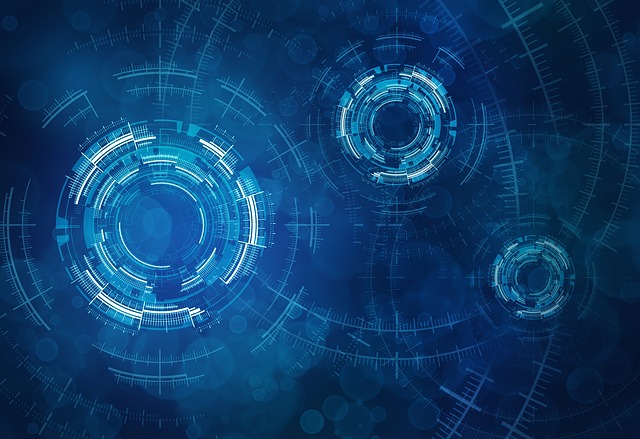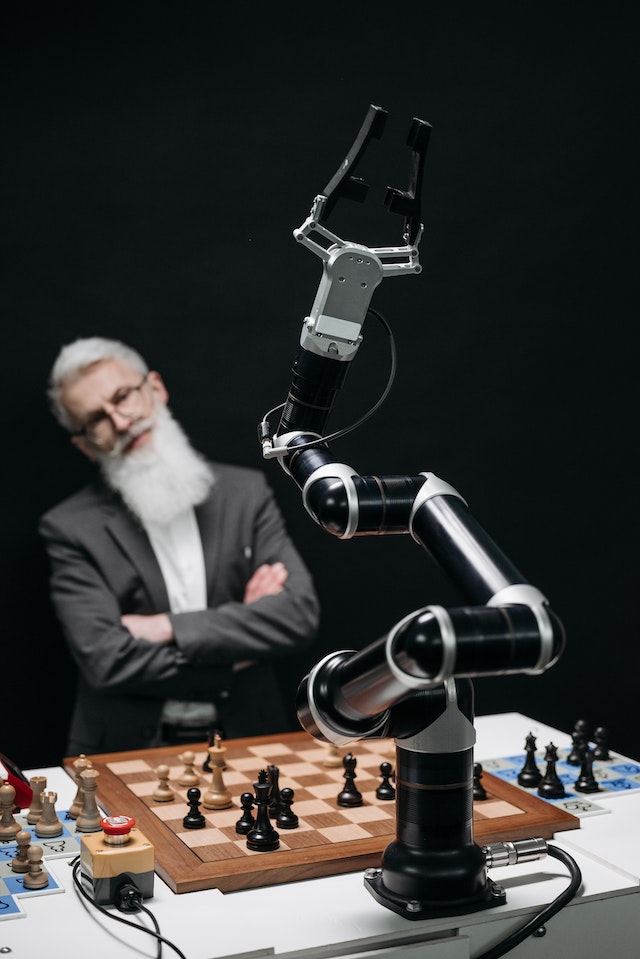
As artificial intelligence (AI) continues to evolve and become integrated into various aspects of our lives, the social and economic impacts cannot be ignored. While AI has the potential to greatly improve efficiency, productivity, and quality of life, there are also ethical concerns and potential negative consequences that must be addressed.
One of the biggest concerns with AI is the potential for job displacement. As AI systems become more advanced, many jobs could become obsolete, leaving millions without employment. This could lead to an increase in poverty, inequality, and social unrest. It is important for governments and businesses to invest in retraining programs and new job creation to ensure a smooth transition into the age of AI.
Another concern is the potential for AI to perpetuate and even amplify existing biases and discrimination. If AI algorithms are trained on biased data sets, they will reflect those biases in their decision-making processes. This could lead to discrimination in hiring, lending, and other areas, exacerbating existing social inequalities.
There are also ethical concerns around the use of AI in areas such as defense, law enforcement, and healthcare. In these fields, decisions made by AI systems could have life-altering consequences, and it is important to ensure that these systems are transparent, accountable, and uphold human rights.
Despite these concerns, AI has the potential to greatly benefit society. Advances in healthcare, education, transportation, and other areas could greatly improve the quality of life for people around the world.
It is important to approach AI with caution and to address the ethical concerns and potential negative consequences, while also embracing the potential benefits.
As we move forward into an increasingly AI-driven world, it is crucial that we adopt a responsible and thoughtful approach to its implementation. Only by doing so can we ensure that the social and economic impacts of AI are positive and equitable for all.
Social Impacts of AI
As artificial intelligence (AI) becomes more prevalent in our daily lives, its social impacts cannot be overlooked. While AI has the potential to bring about positive changes, it is crucial to understand and address the potential effects it may have on society. This section explores the social implications of AI, including job displacement, inequality, and ethical concerns.
Job Displacement:
AI technology advancements have raised concerns about job displacement and unemployment. As AI systems become more sophisticated, there is a possibility that certain jobs could become automated, leading to a shift in the labor market. This could result in widespread unemployment and economic instability.
Governments and businesses should prioritize retraining programs and job creation initiatives to ensure that individuals are equipped with the necessary skills for employment in the age of AI.

Inequality:
While AI has the potential to improve lives, there is also a risk that it may exacerbate existing social inequalities. If AI algorithms are developed using biased data sets, they can perpetuate discrimination in various areas, such as employment, lending, or access to services. It is essential to ensure that AI technology is developed with fairness and inclusivity in mind, and that decision-making processes are transparent and accountable.
Ethical Concerns:
AI raises significant ethical concerns across multiple domains, including defense, law enforcement, and healthcare. In these fields, decisions made by AI systems can have far-reaching consequences for individuals and society. It is crucial that these systems are designed with utmost care and uphold human rights. Transparency and accountability should be paramount in the development and use of AI to mitigate potential harm.
Changes in Daily Life and Interactions:
As artificial intelligence (AI) becomes more integrated into our daily lives, we can expect significant changes in the way we interact with technology and each other. From the mundane to the extraordinary, AI will revolutionize the way we go about our daily routines.
AI has also transformed the way we communicate and connect with others. Language translation AI enables real-time, multilingual conversations, bridging language barriers and fostering global understanding. Social media platforms utilize AI algorithms to personalize content, ensuring that you are always connected to the people and topics that matter most to you.
Economic Impacts of AI
As artificial intelligence (AI) continues to advance, its impact on society becomes more pronounced. From job displacement to industry disruption and ethical considerations, AI’s influence is far-reaching and requires careful navigation to ensure a positive and equitable future.
Productivity and Efficiency Improvements:
AI has the potential to significantly enhance productivity and efficiency across industries. By automating repetitive tasks, AI systems free up human workers to focus on more complex and strategic activities. This increased productivity can lead to economic growth and improved overall standards of living. However, it is crucial to ensure that technological advancements are accompanied by adequate support systems and retraining programs for workers whose jobs may be affected.
Industry Disruption and Transformation:
The integration of AI technology into industries can disrupt traditional modes of operation and transform business models. From autonomous vehicles revolutionizing transportation and logistics to automated customer service systems, AI-powered solutions are reshaping industries across the board. While this disruption may bring about new opportunities and increased innovation, it is important to address potential challenges such as job displacement and the need for reskilling and upskilling programs.
Economic Inequality and Wealth Distribution:
While AI has the potential to drive economic growth and improve living standards, there is a risk of exacerbating existing inequalities. The adoption of AI technologies may amplify income disparities, as those who benefit from the implementation of AI systems may accumulate more wealth, leaving others behind. It is crucial for governments and businesses to ensure that economic gains from AI are shared equitably and that policies are in place to mitigate inequalities and promote inclusive growth.

Transforming Social Development
Artificial intelligence (AI) is revolutionizing society’s approach to social development, opening up new possibilities and igniting hope for a better world. From enhancing healthcare and education to fostering community engagement and innovation, AI holds the potential to reshape our social fabric.
AI-powered Healthcare:
AI has immense potential to revolutionize healthcare delivery and improve patient outcomes. With AI-driven diagnostics, early detection of diseases becomes more precise, enabling timely intervention and personalized treatments. AI-powered telemedicine allows patients in remote areas to access expert medical advice, overcoming geographical barriers. Additionally, AI can analyze vast volumes of medical data to identify patterns, leading to breakthroughs in drug discovery and disease prevention.
Transforming Education:
AI-based educational tools have the power to enhance learning experiences and cater to individual student needs. Intelligent tutoring systems can adapt teaching strategies to suit different learning styles, fostering personalized education. AI chatbots provide instant support to students, promoting self-directed learning. Furthermore, AI can assist teachers in administrative tasks, enabling them to devote more time to student engagement and creativity.
Community Engagement and Empowerment
AI technologies provide platforms for citizens to actively engage in decision-making and drive positive social change. Social media analytics, powered by AI, facilitate real-time sensing of public opinion, enabling policymakers to make informed decisions. AI-based chatbots can assist citizens in accessing government services efficiently and transparently. Moreover, AI algorithms can identify social trends and patterns, aiding in the development of targeted interventions and programs.
Fostering Innovation and Economic Growth
AI serves as a catalyst for innovation, driving economic growth and creating opportunities for entrepreneurship. AI-powered algorithms can analyze market trends, identify consumer preferences, and optimize supply chains, leading to more agile and efficient businesses. Startups leveraging AI technologies can disrupt traditional industries, spurring job creation and economic dynamism. Furthermore, AI can enhance research and development, enabling scientific breakthroughs and technological advancements.
AI is not just a technological leap. It is a transformative force that can shape the future of social development. However, it is crucial to address potential pitfalls and ensure ethical AI implementation. Governments, businesses, and institutions must work together to promote AI literacy, provide training and reskilling opportunities, and prioritize inclusivity in AI-driven initiatives. By harnessing the power of AI responsibly, we can unlock a future where social development knows no bounds, ensuring a fair, equitable, and prosperous society for all.
